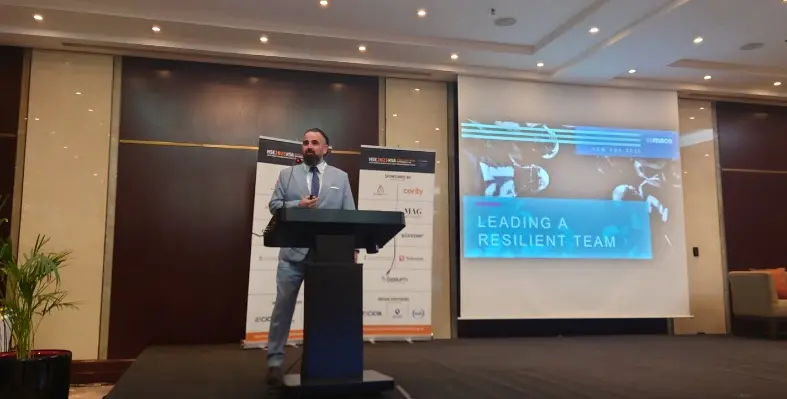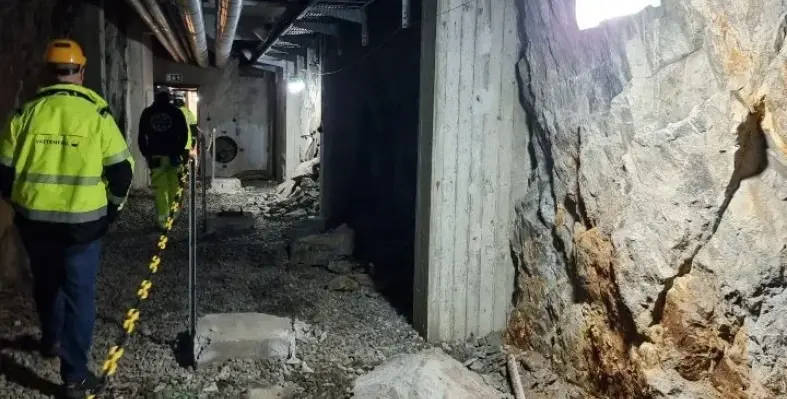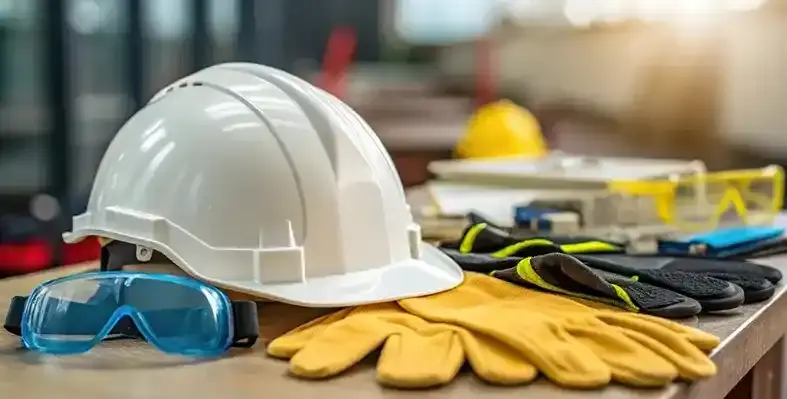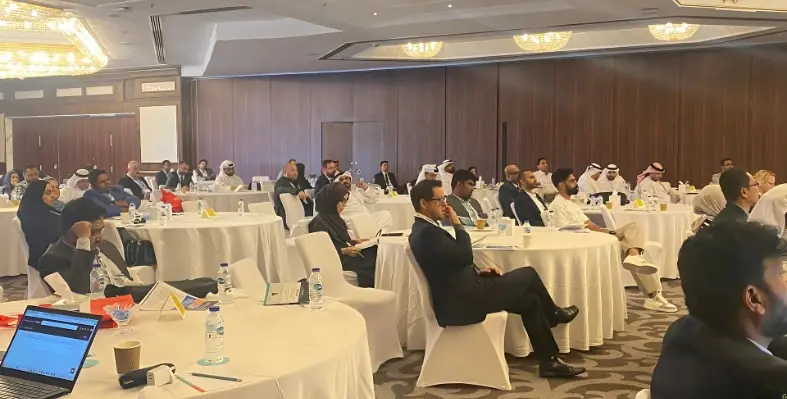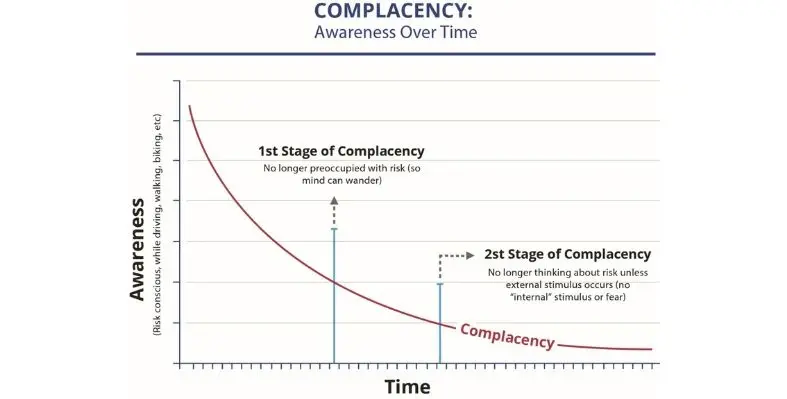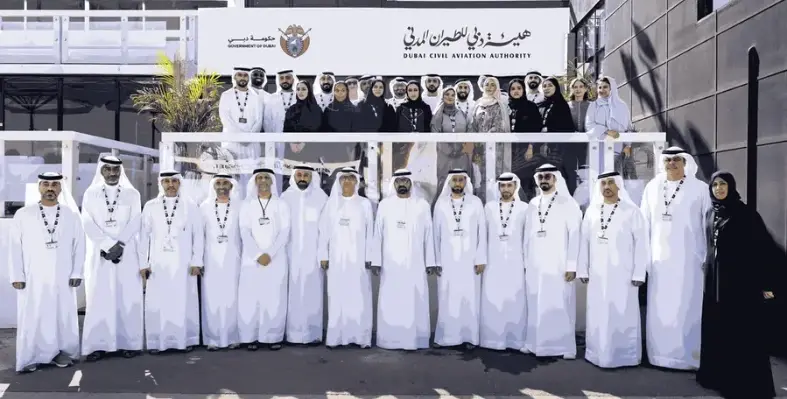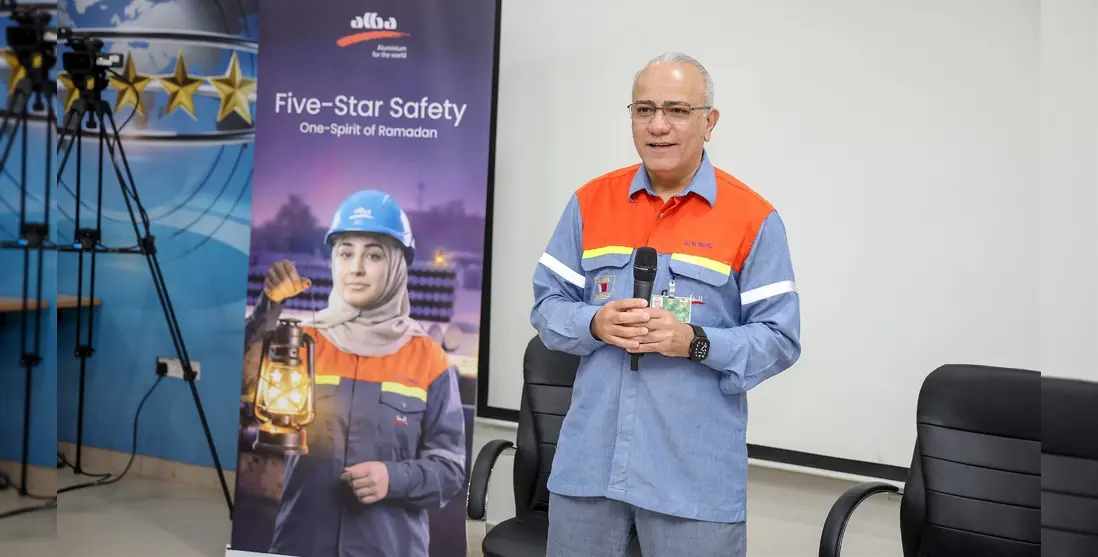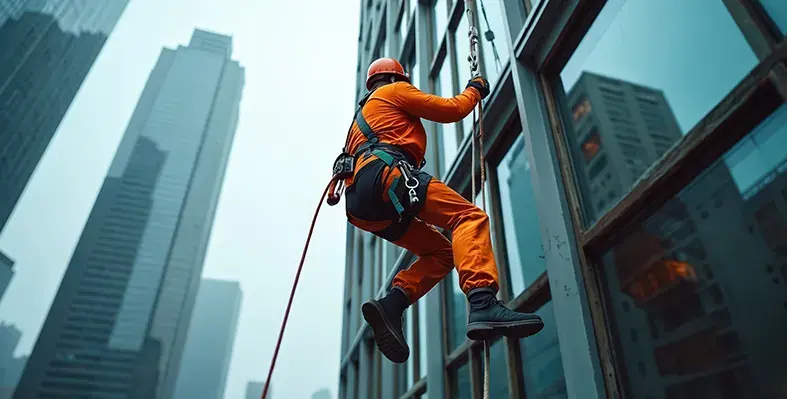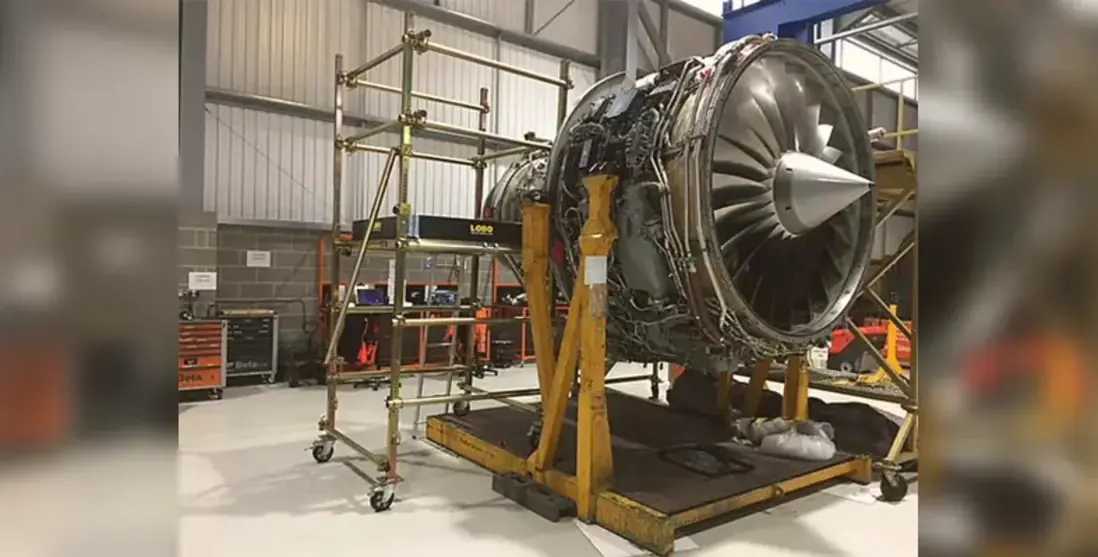Head of HSW for Mace at Qiddiya, Blair Boyd, took to the stage at HSE KSA 2025 to shine the spotlight on the importance of understanding mental illness within the workplace, and discussed how the company is integrating the power of psychological safety into its core values to best support workers
“Unfortunately discussions on mental health is quite a difficult subject for people to talk about, and there's a few reasons why people feel that there's social or professional repercussions from discussing mental health,” Boyd said in his opening remarks for a session dedicated to removing the stigma of workplace mental health.
In his presentation, Boyd touched on the UK statistic stating that over the last decade, 7,000 tradespeople have died from suicide relating to their mental health.
“People fear that they may be disregarded as a professional for having that discussion. Some people internalise shame and self-stigma. And stigma is a big barrier to mental health discussions,” he stated.
Boyd turned the spotlight towards the leaders across the industry, asking who looks after the managers and team leaders if they are the ones suffering from stress and added pressure.
“One of the things we recognise at Mace is who do our leaders talk to if they need help? The leader has to be the strongest person in the room, the person that’s leading the organisation or leading the project […] so we implemented a programme to give them a support function, a safe space to offload any problems that they are having.”
Workplace worries
Statistics state that from 2023/2024, there were 776,000 cases of work-related stress, depression or anxiety recorded within the UK, causing 46% of all work-related ill-health cases and 55% of all working days lost due to ill-health.
Boyd stressed how integral it is to control exposure to stress within the workplace as outside factors may continue to effect employees but a safe space within a working environment can help mitigate against performance deterioration.
“Which ones [indicators for stress] can we control in the workplace? We can control workload. Don't overload our people. We can control relationship issues, if it's interpersonal issues between people and the workplace, we can be open and honest and transparent with the news that we have, and not hold things close to their chest. Tell people about what's happening on the project, and we can reassure our teams that have future uncertainty.”
Power of psychological safety
Boyd began to analyse Mace’s own behaviour culture and the treatment of employees’ mental health. The company has integrated psychological safety into its core values in a bid to create a thriving workplace that prioritises health, safety and wellbeing while fostering trust and collaboration.
“The workplace is the modern day hunting ground. Our colleagues are a tribe, and they want to feel a sense of belonging. How do we empower them to positively influence a sense of belonging within the workplace? Well, it's about culture,” Boyd said.
“I like the quote ‘the culture of an organisation is shaped by the worst behaviour the leader is willing to tolerate’ […] As a leader, it is our duty to ensure that we don’t let those personal biases creep into the workplace and treat everyone equally.”
Some of the leadership practices Mace has introduced include:
- Lead by example
- Communicate and share vision
- Develop competence to enable others to act
- Engage your team in the Mace behaviours
- Reward and recognise
- Look for ways to continually improve
“We [at Mace] seek to identify and observe the surroundings, engage with our colleagues and seek ways to improve our processes. Health and safety is fundamental to everything that we do at Mace, and our CEO will tell you the most important thing, and the thing that keeps them awake at night is making sure that the sites are safe and healthy environments to be in, and that people's well-being is respected,” Boyd concluded.





